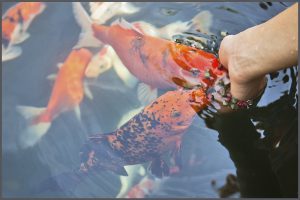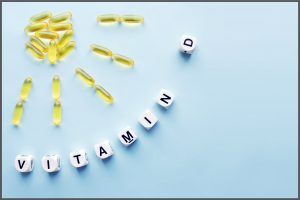To spare you the trouble of building your very own “KnE must-reads” list, we dug through our data to reveal some of the most popular articles from March 2020!
Does breakfast help with academic performance? How competitive is the apparel industry? Are there predictors for depression based on sociodemographic, physiological, lifestyle, and health characteristics? Browse this and much more below!
1. Online Gaming: Impact on the Academic Performance and Social Behaviour of the Students in Polytechnic University of the Philippines Laboratory High School
An article from the KnE Social Sciences series assesses the impact of online gaming on the academic performance and social behaviour of students. The study reveals that boys are not only more likely to play online games, but are more likely to use multi-player games.
Continue reading here.
2. The Effect of Breakfast on Academic Performance among High School Students in Abu Dhabi
A study from the Arab Journal of Nutrition and Exercise examines the effect of breakfast intake on the academic performance of young female students in the emirate of Abu Dhabi. The claim that breakfast is the most important meal of the day has an abundance of sound science behind it. However, there are few studies which examine the relationship between breakfast consumption and academic performance.
Continue reading here.
3. A Study of Clothing Industry Competitiveness with Porter’s Five Force Approach
A study from the KnE Social Sciences series explores the strength of competitiveness in the apparel industry in Agam district (Indonesia). The competitiveness of typical SME is studied by taking into account the dimensions of newcomer threats, government support, supplier strength, buyers and the availability of substitute products by using Porter’s Five Forces approach.
Continue reading here.
4. Factors Associated with Depression among University Students in Malaysia: A Cross-sectional Study
This featured article from the KnE Life Sciences series explores the prevalence of depression and the factors influencing depression among university students in Malaysia. Depression is a recurring mental health problem among younger demographics. University students are particularly susceptible due to stress, workload and independent living and other factors.
Continue reading here.
5. Von Hippel-Lindau (VHL) Disease and the Eye
Retinal hemangioblastoma (also referred to as retinal capillary hemangioma) is a benign lesion originating from the endothelial and glial components of the neurosensory retina and optic nerve head. Historically known as a manifestation of the VHL disease, it can be seen as an isolated finding or in association with some rare ocular conditions. The article by the Journal of Ophthalmic and Vision Research reviews all studies shortlisted from the PubMed and the Web of Knowledge databases about VHL disease from inception to March 2019.
Continue reading here.
6. Water Scrubbing for Removal of CO2 (Carbon Dioxide) and H2S (Hydrogen Sulfide) in Biogas from Manure
A study from the KnE Energy series investigates water scrubbing as a method to remove CO2 and H2S in biogas from manure. Biogas purification using water scrubbers sends pressurised water through a pressurised biogas purification column from the bottom in order to reduce CO2 and H2S gases. This method of purification resulted in a 32.8% reduction in the levels of H2S and a 21.2% reduction in CO2 levels, indicating that the H2S gas is more water soluble than CO2.
Continue reading here.
7. Characterisation of Bacillus Megaterium and Bacillus Mycoides Bacteria as Probiotic Bacteria in Fish and Shrimp Feed
A study from the KnE Life Sciences series tests the cellulolytic ability of Bacillus Megaterium and Bacillus Mycoides bacteria for probiotic microbe candidates in fish and shrimp feed. The identification of the cellulolytic and amylolytic abilities of these bacteria was obtained by non-experimental methods and descriptive analysis.
Continue reading here.
8. The Effect of Vitamin D Status On Ovarian Reserve Markers In Infertile Women: A Prospective Cross-Sectional Study
Vitamin D deficiency and infertility are two important health problems in Iran. Some studies suggest that vitamin D may influence Anti-Müllerian hormone (AMH) and Antral Follicle Count (AFC) as an ovarian reserve. A study by the International Journal of Reproductive BioMedicine investigates the impact of vitamin D on AMH serum concentrations/AFC.
Continue reading here.
To continue browsing head on over to: www.knepublishing.com












